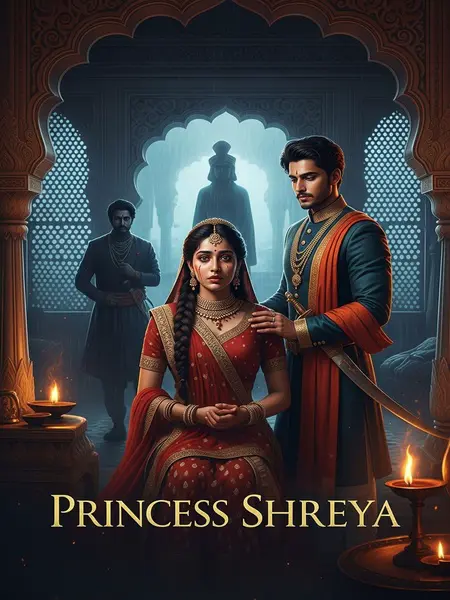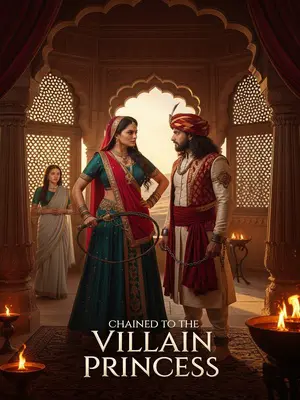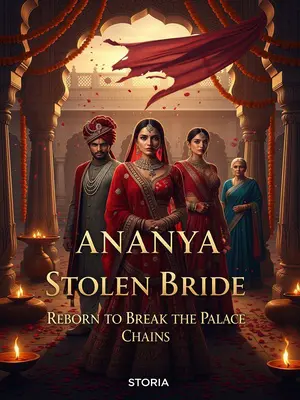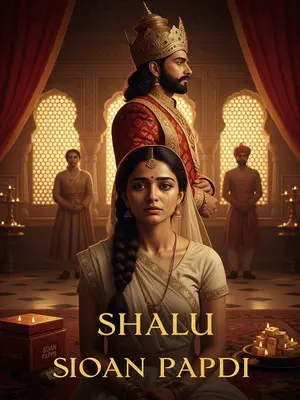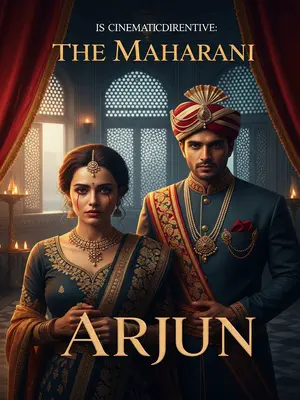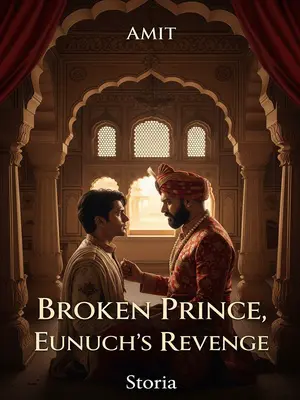Chapter 2: Orphaned by Betrayal
On the day the capital fell, I was shielded in my father’s arms. He pressed a rudraksha talisman into my small hand, the sacred beads warm from his hand, their smell mixed with sandalwood oil. At the time, I didn’t understand its significance.
The gold thread was rough in my palm. Even as chaos thundered outside, Father’s hands trembled as he tied it. The sacred rudraksha glinted in the last light.
Father told me, “Stay close to your mother. Live well.”
His voice was thick, but he forced a smile for me, smoothing my hair. "Betu, promise me you will listen to Amma."
Then, he pushed me away and took his own life.
It was so quick. One slash of his own sword—my scream stuck in my throat as his blood splashed, hot and sticky, across my cheeks.
Hot blood splattered across my face. When my mother found me, I was desperately trying to cover Father’s neck with my tiny hands. I clung to his sword hilt, unable to let go, my knuckles white, before my mother dragged me away.
I clawed at his kurta, pressing my little fingers to his wound, crying, "Baba, Baba, mat jao na!" My hands were too small; his blood wouldn’t stop.
I understood nothing, only that I didn’t want Father to die.
My chest hurt with the force of my sobs. I couldn’t even find my own voice to call for help.
But Mother merely glanced at Father, then pulled me away.
Her face was as calm as ever, only her kohl slightly smudged. Without a word, she gripped my arm tight—her bangles clinking against my wrist.
As we stepped out of the palace gates, I saw all my brothers sprawled on the marble courtyard, each one bleeding out. The marble was cold beneath my bare feet, sticky with blood. Somewhere, a koel cried as if mourning with me.
The marble, once cool and white, was streaked red. I stumbled, almost falling over the eldest, his turban askew.
I counted them, one by one.
My lips moved without sound, "Ek, do, teen..." Each face, each still body, burned into my mind.
All five of Father’s sons were there.
The youngest still held his wooden top. I stared at it, feeling the world tilt.
I was so terrified I couldn’t even cry. Mother dragged me forward and bowed to a tall man.
My knees buckled, but she kept me upright. Her head dipped in a low namaskar—her dupatta slipping from her hair.
“Pranam, Maharaj. Kaveripur ka Raja ab nahi raha.”
Her voice was steady—clear and cold, like the water from the temple well in winter. I felt everyone’s eyes on us; whispers rose.
Then I watched as my mother presented the royal seal—the emerald seal of state—to that man.
The emerald gleamed in her palm, the same one Father used to press on every edict. My eyes blurred with tears.
“Shreya has done very well. What is your wish, Shreya? I will grant you anything.”
His voice was deep and heavy with satisfaction. He cradled the seal in his hand, the rings on his fingers glinting.
Mother hesitated for a long time. She seemed to want everything, yet also didn’t know what to ask for.
Her lashes fluttered, jaw tense. I could see her longing—for jewels, for power, for something more. But she just stared at me.
In the end, she said she wanted me to live—to continue living as a princess.
She placed her hand on my head, fingers cold. "Let her live as a princess," she said quietly, as if asking for the smallest thing in the world.
